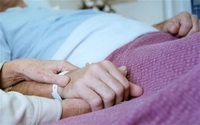A potential shift toward the integration of health and social care

In January, a nationwide report revealed that bed-blocking – the prolonged stay in a hospital due to an inability to arrange for effective care elsewhere – rose by more than 40% in a one-year timeframe, pointing to a near-crisis situation within the NHS. As elderly patients are becoming a growing population dependent on the healthcare system for treatment of ongoing illness and difficult to treat injuries, hospitals face a growing epidemic of delayed discharge which in turn leaves incoming patients waiting extended periods for an available bed to open. According to the annual report, the lacking availability of social care in the community or at one’s home has created the inflating bed-blocking figures, and the need for elderly patients to return to the hospital for follow-up care.
After the report was published, healthcare advocates, patients, and their families called for sweeping changes to be made in an effort to correct the pressing issue. The Department of Health through a new NHS mandate for the upcoming year has decided to face the challenge head on, promising to free up hundreds to thousands of hospital beds currently occupied by elderly patients who cannot secure social care. The free-up should reduce the bed-blocking figures by nearly 3.5%, or 2,000 beds per day.
The New Mandate
In the current state of the NHS, nearly 7,000 people are forced to stay in the hospital after treatment for an illness or injury long after they are ready to be discharged because they have little to no access to social care services outside the hospital system. The new plan announced by the Department of Health plans to target this concern by piloting a program where elderly patients can receive care within their own home. The first pilot, taking place in South Worcestershire clinical commissioning group, discharges a patient when they no longer need care through the NHS, but follows up by sending a nurse to the patient’s home with basic care needs. Changing wound dressings, oversight of medication, bathing, and eating may all be provided by the in-home nurse.
Adding to the mandate to reduce bed-blocking throughout the NHS is the pledge to begin both weekend and evening services by GPs across 40% of the country by 2018. The Department of Health representatives believe that extending hours across NHS trusts allows for elderly patients, those aged 75 and above, the ability to see a GP by appointment the same day, when necessary. The combination of these added services both in-house and through social extensions provide the foundation for reducing bed-blocking by a significant amount in the years to come.
Implications for All Patients
The NHS has struggled to provide the quality and availability of care for patients across all age groups and demographics due to staffing shortages and cost pressures from both internal and external sources. However, the aging population threatening the already shaky viability of the UK’s healthcare system has added to the overall stress not only in public arenas but social environments as well. A representative from a clinical negligence solicitors firm, feels strongly that the UK has a responsibility to achieve a greater level of efficiency when meeting the health needs of elderly patients before it has a more substantial impact on the rest of the patient population. The integration between public health and private social services laid out in the new mandate is a step in the right direction.
As elderly patients are able to receive the ongoing care they need outside the confines of the hospital system, patients requiring medical attention through A&E units across the NHS have a better opportunity to experience harm-free care in a timely fashion – one of the founding principles of the creation of the NHS. Similarly, elderly patients deserve improved access to social care services from trained, professional providers, and the pilot program launched through the new mandate offers a method to achieve this in the near future. To meet these and other targets outlined in the Department of Health mandate, nearly £2 billion in additional investment specifically earmarked for social care coupled with £100 million in capital funding for A&E departments are on the docket for 2017 and beyond.

